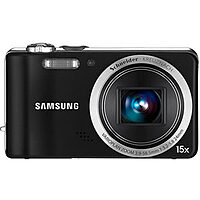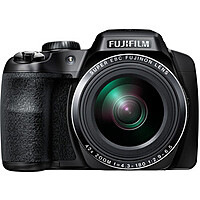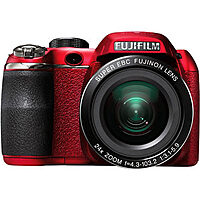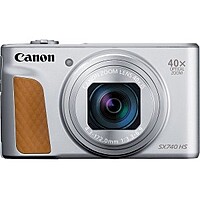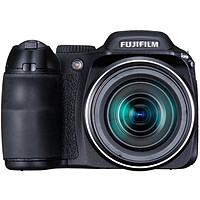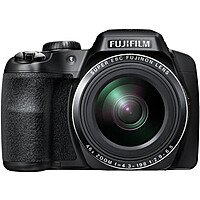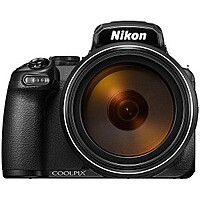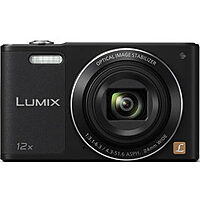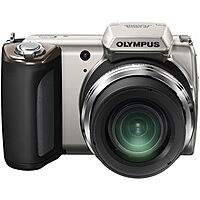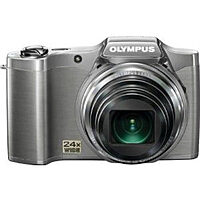Olympus Stylus SP-100 with Canon PowerShot SX730 HS Overview
Let's compare Canon PowerShot SX730 HS with Olympus Stylus SP-100.
These models are included in the Small Sensor Superzoom cameras.
Canon SX730 HS was released in 2017, and Olympus SP-100 in 2014.
PowerShot SX730 HS is newer, which is a plus. Stylus SP-100 3 years older.
However 3 years, the difference is not so bad.
The sensor resolution of PowerShot SX730 HS is greater than that of Stylus SP-100. However, the difference of 4 MP is not very significant.
The more megapixels the camera has, the more detailed and clear the picture will be. The number of megapixels will also affect the maximum size of the photos, which then can be printed without loss of quality.
At the second camera (Stylus SP-100), the minimum ISO value is lower, which gives more opportunities for shooting in daylight.
A larger maximum ISO allows you to take good pictures in the dark.
At Olympus SP-100, the maximum ISO is greater by 3200.
Both cameras have Optical image stabilization.
Both cameras feature a 3-inch tilting screen.
Stylus SP-100 has electronic viewfinder, and the PowerShot SX730 HS doesn’t have.
Viewfinder Stylus SP-100 has a higher resolution of 920k dots, PowerShot SX730 HS has a resolution of no electronic viewfinderk dots.
Burst mode, also called continuous shooting mode, sports mode or continuous high speed mode, is a shooting mode in still cameras. Canon PowerShot SX730 HS has 7.0 fps continuous shooting.
Canon PowerShot SX730 HS has 7.0 fps continuous shooting.
| General |
PowerShot SX730 HS |
Stylus SP-100 |
| Brand |
Canon
|
Olympus
|
| Model |
PowerShot SX730 HS |
Stylus SP-100 |
| Announced |
April, 2017 |
January, 2014 |
| Body Type |
Compact |
SLR-like (bridge) |
| Lens |
| Lens Mount |
fixed lens |
fixed lens |
| Manual Focus |
|
|
| Focal Lens Multiplier |
|
|
| Number of Lenses |
0 |
0 |
| Macro Focus Range |
1 |
1 |
| Screen |
| Screen Size |
3" |
3" |
| Screen Type |
Tilting |
Fixed |
| Screen Resolution |
922k pixels |
460k pixels |
| Touch Screen |
|
|
| Live View |
|
|
| Viewfinder |
| Viewfinder |
None |
Electronic |
| Viewfinder Resolution |
no electronic viewfinder |
| Viewfinder Coverage |
n/a% |
n/a% |
| Viewfinder Magnification |
0.0 |
0.0 |
| Autofocus |
| AF Touch |
|
|
| AF Continuous |
|
|
| AF Single |
|
|
| AF Tracking |
|
|
| AF Selective |
|
|
| AF Center |
|
|
| AF Multi Area |
|
|
| AF Live View |
|
|
| AF Face Detection |
|
|
| AF Contrast Detection |
|
|
| AF Phase Detection |
|
|
| Number of Focus Points |
0 |
0 |
| Number of Cross Focus Points |
|
0 |
| Photography Features |
| RAW Support |
|
|
| Min Shutter Speed |
1/15 sec |
1/30 sec |
| Max Shutter Speed |
1/3200 sec |
1/1700 sec |
| Continuous Shooting |
5.9 fps |
7.0 fps |
| Shutter Priority |
|
|
| Aperture Priority |
|
|
| Manual Exposure Mode |
|
|
| Exposure Compensation |
|
|
| Custom White Balance |
|
|
| Image Stabilization |
|
|
| Built-in Flash |
|
|
| Flash Range |
4.00 |
no built-in flash |
| Flash Modes |
Auto, on, slow synchro, off |
Auto, Red Eye Reduction, Fill-in, Off |
| External Flash |
|
|
| AE Bracketing |
|
|
| AE Bracketing Range |
±2 EV |
± EV |
| WB Bracketing |
|
|
| Sensor |
| Sensor Size |
1/2.3 |
1/2.3 |
| Sensor Type |
BSI-CMOS |
BSI-CMOS |
| Sensor Dimensions |
6.16 x 4.62 mm |
6.16 x 4.62 mm |
| Sensor Area |
28.5 mm² |
28.5 mm² |
| Sensor Resolution |
20 MP |
16 MP |
| Max Image Resolution |
5184 x 3888 |
4608 x 3456 |
| Max Native ISO |
3200 |
6400 |
| Min Native ISO |
80 |
125 |
| Max Boosted ISO |
0 |
12800 |
| Min Boosted ISO |
0 |
0 |
| Video Features |
| 4K |
|
|
| Max Video Resolution |
1920 x 1080 |
1920 x 1080 |
| Video Formats |
MPEG-4, H.264 |
H.264 |
| Timelapse Recording |
|
|
| Microphone Port |
|
|
| Headphone Port |
|
|
| Exposure Modes |
| Multi-Segment |
|
|
| Average |
|
|
| Spot |
|
|
| Partial |
|
|
| AF-Area |
|
|
| Center Weighted |
|
|
| Connectivity |
| GPS |
None |
None |
| Wireless Connectivity |
Built-In |
Built-In |
| Bluetooth |
|
|
| HDMI |
|
|
| USB |
USB 2.0 (480 Mbit/sec) |
USB 2.0 (480 Mbit/sec) |
| Battery |
| Battery Life |
250 shots |
330 shots |
| Battery Type |
Battery Pack |
Battery Pack |
| Battery Model |
|
LI-92B |
| Physical |
| Weight |
300 g |
594 g |
| Physical Dimensions |
110 x 64 x 40 mm |
122 x 91 x 133 mm |
| Environmental Sealing |
|
|
| Water Proof |
|
|
| Dust Proof |
|
|
| Shock Proof |
|
|
| Crush Proof |
|
|
| Freeze Proof |
|
|
| Shock Proof |
|
|
| Storage |
| Storage Type |
SD/SDHC/SDXC card |
SD/SDHC/SDXC, internal |
| Storage Slots |
1 |
1 |
| Other Features |
| Self Timer |
|
|
| Selfie Friendly |
|
|
Interesting Small Sensor Superzoom

